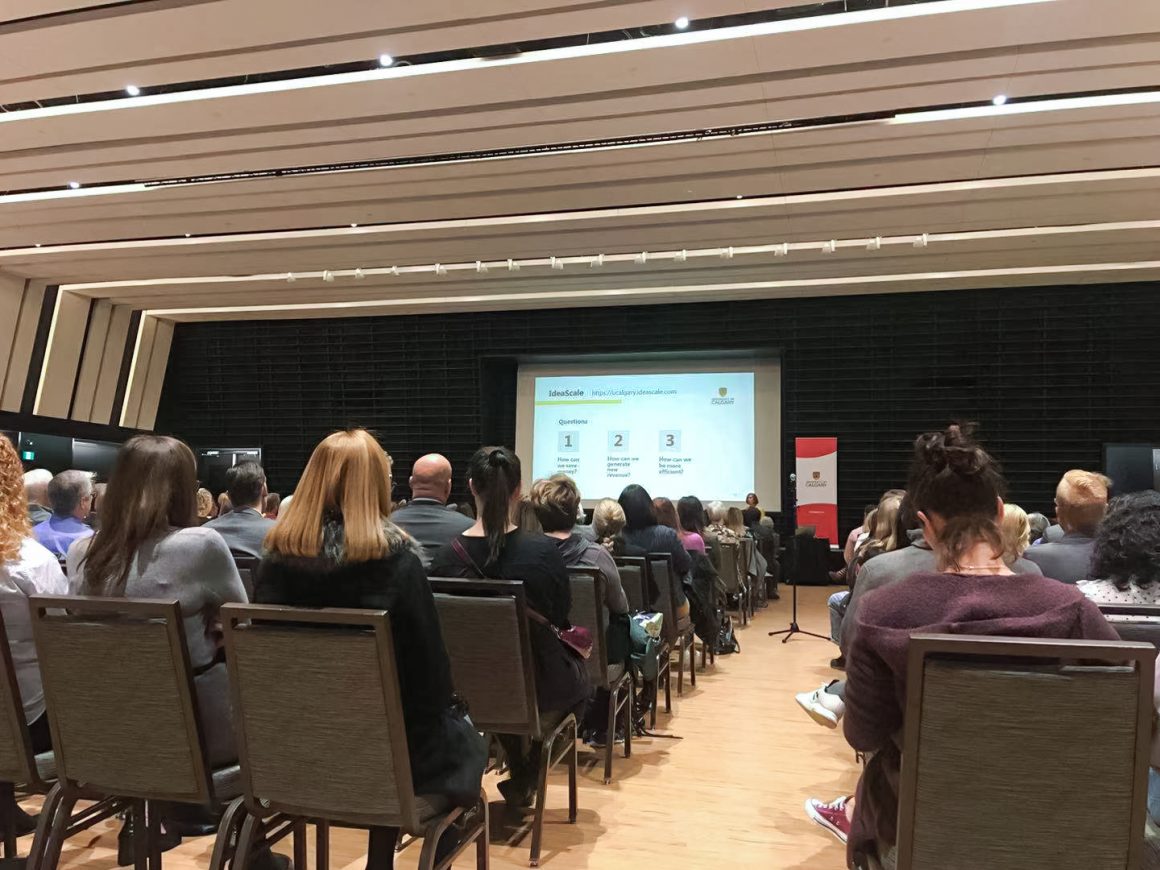
Budget cuts “not a surprise” to U of C leadership
By Kristy Koehler, April 9 2021—
“This was not a surprise and we were prepared,” said University of Calgary president Ed McCauley of the province’s budget cuts to post-secondary education.
On March 29, U of C held a virtual budget town hall over Zoom. McCauley, as well as (now former) provost and vice-president academic Dru Marshall and vice-president finance and services Linda Dalgetty, provided information about the fiscal state of the university and took questions from students and community members over Zoom.
“We were prepared for the cut to our provincial grant,” said McCauley. “There was a tremendous amount of work done by our students, our faculty, our staff, as well as third party advocates, to talk about the important role that the University of Calgary plays, not only in Calgary but in Alberta and beyond.”
McCauley said he wanted to be sure that everyone understood the value proposition of having a great research university in Calgary. Despite the “considerable work” that went into preparing for this year’s cuts, McCauley noted that the consequences of successive cuts resulted in a reduction in staffing, changes in service levels and increased tuition and fees.
“The budget cuts are not finished,” he said. “Given that cuts are expected in 2022-23, our financial situation remains very fluid.”
McCauley noted the “significant challenges” faced by the Alberta government with regard to the pandemic and the “economic downturn now entering its seventh year.”
“The fiscal pressures faced by the government are real,” he said. “Long-term solutions to these challenges require economic diversification, new solutions and a trained workforce — the very work that our universities, and in particular the University of Calgary, excel at.”
In addition to reductions in the Campus Alberta Grant, McCauley noted that going forward, 5 per cent of the university’s funding will be tied to a performance-based metric regarding work-integrated learning. No further details about performance-based metrics were discussed.
Marshall reiterated the work put in by the university to prepare for the budget. The team put together a few different planning scenarios and were ready to execute each one, depending on the UCP’s post-secondary numbers.
One piece of positive news, she noted, was the increase in one-time dollars to allow upgrades and maintenance on campus. This funding increased by close to $9 million.
A major consequence of the budget cuts has been the size of the university workforce. And while the university reduced its workforce by approximately 550, Marshall was careful to note that it was not a loss of 550 people from their jobs, “but a combination of decreasing the number of vacancies, an abolishment of some positions that weren’t filled” and also the unfortunate elimination of some positions and termination of some staff.
“It does appear that next year there will be further cuts in the budget and so it’s clear that we’re not done yet,” said Marshall. “I do want to say though that at a level of principle we’ve tried to reduce the human cost.”
She noted that salary freezes are ongoing and that many positions have not received increases since 2014.
Dalgetty discussed the “reserves” that many claim the university sits on and noted that much of this is endowment donations, provided for specific purposes under trust agreements with donors. This money is not available to fund operations and is not to be spent outside the wishes of donors.
McCauley ended the formal presentation by trying to help people visualize the sheer size of the $86.9 million in cuts to the Campus Alberta Grant.
“It’s a big number and it’s often hard to grasp the impact and the magnitude of that number,” he said, noting that it represents the entire cost to run one of the major faculties at U of C — “staff, supports, operations, everything.”
Further cuts are coming, he said, and it’s important for the community to know that the university will try to manage the cuts as best they can, minimizing the human cost and trying to grow the university.
“Economic recovery and improving the quality of life for Albertans in whatever dimension you’re talking about is going to require the ability of universities and other polytechnics to attract families here to come grow, bring their ideas to the province, grow and move forward,” he said.
